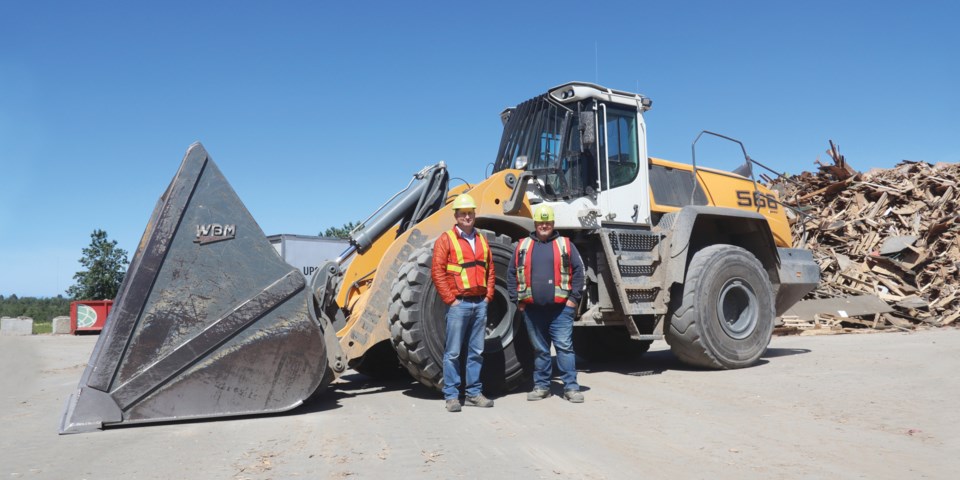The province has decided to remove a significant chunk of farmland in east Richmond from the Agricultural Land Reserve (ALR) – something city council was adamantly opposed to.
The province decided by an order in council to allow a 150-acre parcel owned by Ecowaste - which has been using the ALR property as a construction demolition landfill for more than 50 years - to be removed from the ALR to allow the construction of a recycling facility.
With the landfill getting close to capacity and just a few facilities to dump construction and demolition waste in southern B.C., Ecowaste is pleased with the decision.
“We’re super excited - we see life beyond 2025,” Christian Dietrich, Ecowaste’s vice-president of recycling and waste services, told the Richmond News. He noted they would have had to shut down the landfill in two years if this decision hadn’t come through.
The company approached the city last year with an application to pull the property out of the ALR.
City council, however, voted unanimously not to forward the application to the Agricultural Land Commission (ALC), which would normally make such decisions.
This order in council, however, sidesteps the ALC decision-making process and city council’s ability to stop the application, although, according to the provincial announcement, the ALC was consulted and agreed with the decision.
In fact, the ALC told the company it should apply to have the property removed since it wasn’t possible under new regulations to extend its non-farm use permit as a landfill.
Dietrich noted, however, the city has been “completely supportive” of Ecowaste.
Since Ecowaste’s original permit to use the property as a landfill was issued, the ALC regulations have changed to prohibit construction waste in the ALR.
Hence, when they asked the ALC to extend the permit to 2055 to build the six material recycling facilities on the property, they were turned down.
Ecowaste was planning to spend $50 million to build material recovery facilities on the property, but this investment wouldn’t pay off if their permit wasn’t extended by 20 years to 2055.
In addition to a facility to recycle wood, plastic and metal, EcoWaste wanted to create a “recycling campus” allowing other companies to set up shop and build new products from recycled demolition materials, Dietrich explained.
The next steps will be to apply to the city to build the material recovery facilities and extend its height permit.
The new recycling facility must be built before 2029, according to the province, which made the announcement Friday.
The new recycling facility will allow Ecowaste to divert 65 per cent of the demolition waste it receives from the landfill.



